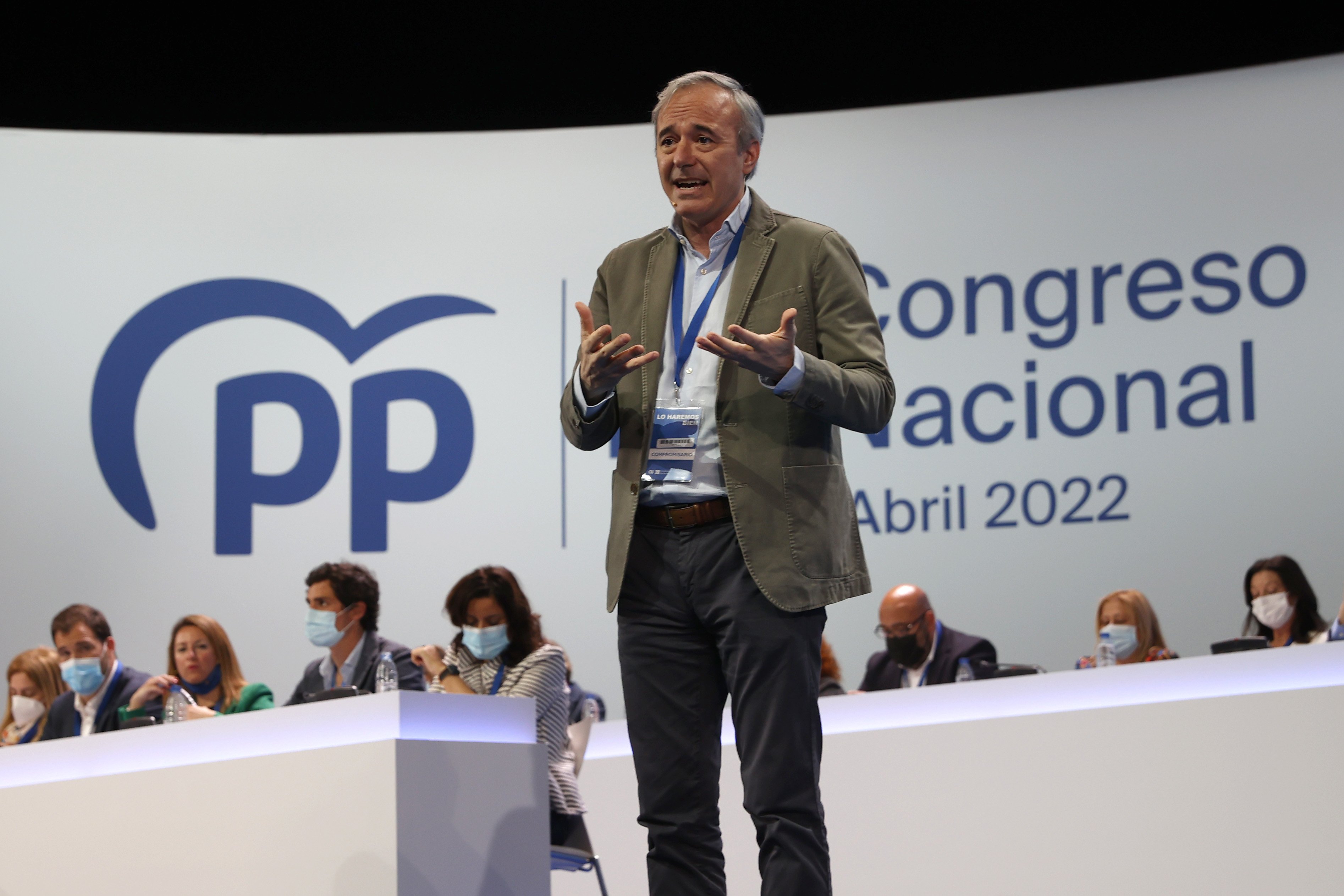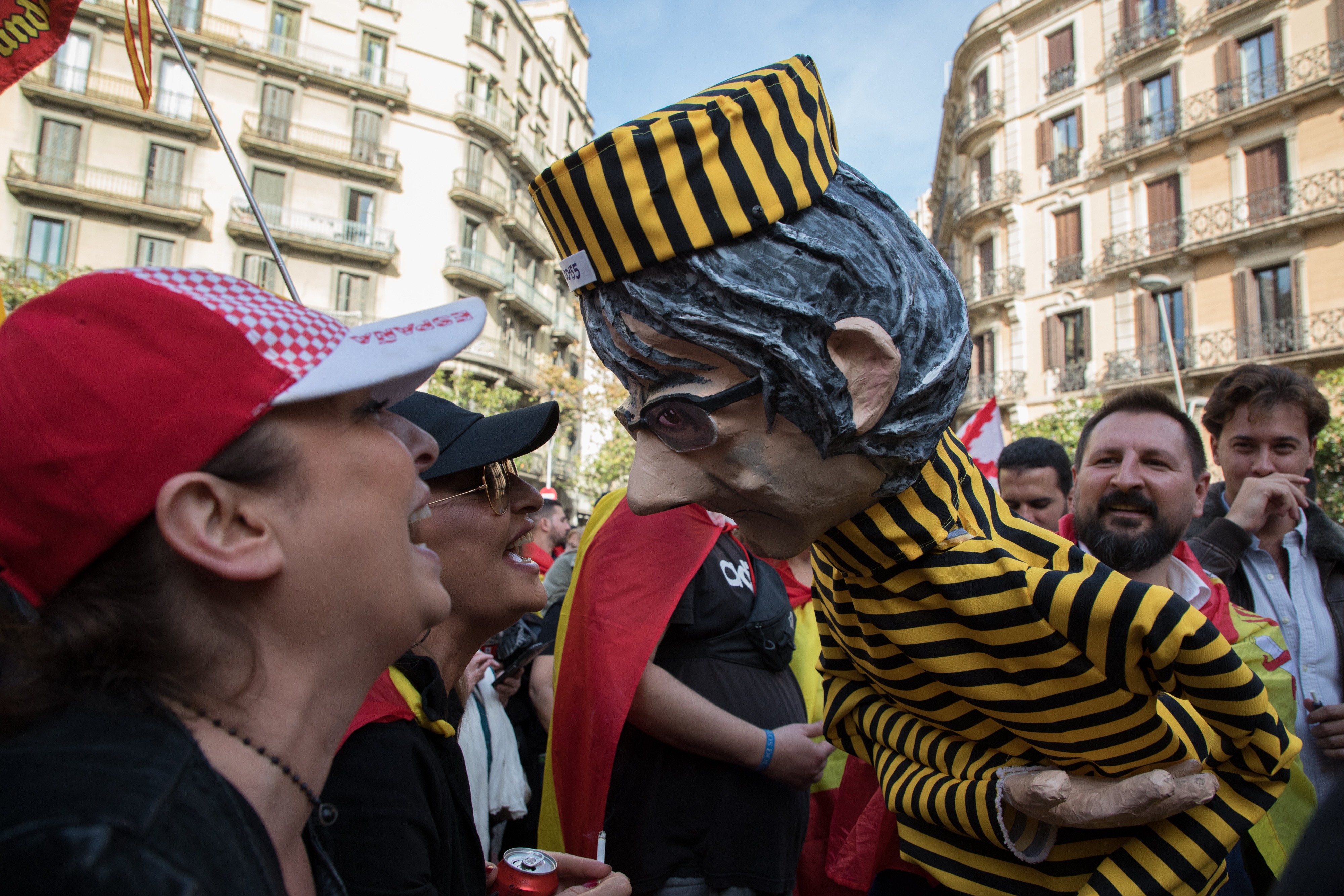There's a new outbreak of catalanophobia out there. That's what they call it: not, of course, a phobia per se, but a frequently-observed condition with clear symptoms - specifically, anti-Catalan attitudes - and a number of derived pathologies, such as a refusal to recognize the Catalan language, culture and customs or even the boycott of Catalan products. The condition has been resurrected again since the agreements reached between Spanish PM Pedro Sánchez and the pro-independence parties allowing the Socialists (PSOE) to continue in government, and the proposed Catalan amnesty law is a fundamental pillar of these agreements; thus, anti-Catalanism is on the attack in the Spanish autonomous communities where the right governs - either the People's Party (PP) or in combination with far-right Vox, as in the Valencian Country, the Balearic Islands and - as well - in Aragón.
Almost every day you can see the signs that the illness is again active in these communities: if last Saturday it was the suspension for spurious reasons of a concert in Mislata (Valencia) where the Catalan artists Julieta and The Tyets were performing, the latest and gravest manifestation is that the president of Aragon, Jorge Azcón (PP), has denied the existence of the Catalan language in his autonomous community. Azcón simply asserted that in Aragón "Catalan is not spoken", and that in the territory he governs people speak "their own linguistic modalities" such as "fragatí". Except that, in fact, this name belongs to the local variety of Catalan that is spoken in part of the Franja de Ponent, the north-south strip adjoining Catalonia's western border with Aragón, taking in the city of Fraga and the Aragonese counties of Baix Cinca and Matarranya. Fragatí mixes lleidatà and ribagorçà, with some touches of valencià - all of them local variants of Catalan.

Plans to withdraw support for Catalan
The PP and Vox government in Aragón wants to reform the community's language law to eliminate the recognition, as "own" languages included in the cultural heritage law, of Aragonese - the language spoken by at least 10,000 people in the northern, mountainous areas of Aragón - and Catalan - with at least 30,000 speakers across Aragón. According to the Heraldo de Aragón newspaper, the Azcón executive now intends to enact a measure similar to that which was passed into law for several years by the PP-led government in 2013, removing the status of Catalan and Aragonese as languages it embraced as its own, recognized in cultural heritage and language laws. In fact, the right-wing government conducted a renaming (and redefining) of these two languages, re-baptizing Aragonese with the acronym LAPAPIP (standing for, in translation, "Own Aragonese Language Specific to the Pyrenean, and Pre-Pyrenean Areas") and referring to Catalan as LAPAO ("Own Aragonese Language Specific to the Eastern Area). As the newspaper recalls, "the processing of this law change generated great political and social controversy" but the 2016 counter-reform, undoing these changes, also sparked "protests from groups in eastern Aragon, grouped around the platform 'We don't speak Catalan'.
"It's what the independentists want"
Jorge Azcón not only refuses to normalize or support Catalan, asserting that it is not a language that is spoken in Aragon, but also asserts that "it is spoken in a neighbouring community" and that "they want to impose it on Aragon". "If someone wants me to swallow what the pro-independence people want, they won't succeed", said the PP leader, who backs the thesis that academics are trying to homogenize a grammar, so there is "a risk that in Aragon we end up speaking Catalan from Barcelona instead of our own variants".
Puigdemont, the most hated
Although Catalanophobia has been present at many other times in the past, one difference at present is that it has a face, that of the president-in-exile Carles Puigdemont, who has been the protagonist of several recent episodes that illustrate the rejection that his figure provokes in a sizeable part of Spanish society, where he is routinely blamed for many of the Spanish state's ills. Not only is he labelled as "criminal" and "coup-plotter" in opinion articles and talk shows on both radio and television, and in the statements of PP and Vox politicians, but it goes further: his figure has been the object of mockery and humiliating attacks. This week, he has been revealed as the co-star of one of the enormous papier-mâché sculptures being readied for Valencia's festival of Les Falles, in which Puigdemont can be seen as the active partner in a coital scene with Pedro Sánchez - all this in the midst of the amnesty law controversy. Another festival parody figure based on Puigdemont, named Pelelemón, won a contest for such creations in the Andalusian town of San Antón (Jaen), and was burned on a bonfire. The Catalan MEP was also a protagonist in the pre-campaign Christmas announcement of Alfonso Rueda, Galician president and PP candidate in the forthcoming elections, who would not let him get on his bus emblazoned with the slogan "Galicia doesn't stop"! And yet, as the Community of Madrid president Isabel Díaz Ayuso said on December 5th, "Catalanophobia does not exist. It's victimist pro-independence propaganda".

